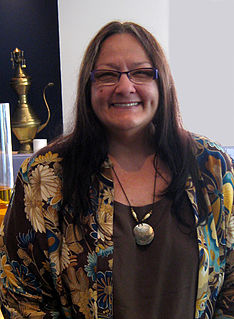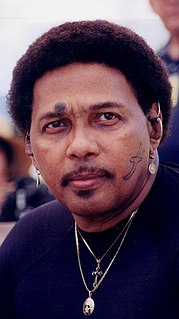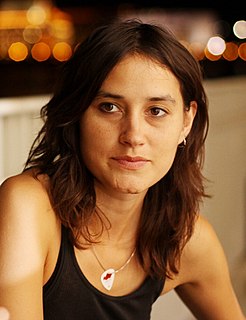A Quote by Deb Haaland
For almost 20 years, I've worked on various campaigns. I started out as a phone volunteer. I'd go into campaign offices, ask for lists of Native American voters, and just start calling people because I felt that I just wanted to help more Native folks get to the polls.
Related Quotes
You see the one thing I've always maintained is that I'm an American Indian. I'm not a Native American. I'm not politically correct. Everyone who's born in the Western Hemisphere is a Native American. We are all Native Americans. And if you notice, I put American before my ethnicity. I'm not a hyphenated African-American or Irish-American or Jewish-American or Mexican-American.
I have four relatively small children, and around fourth grade, they start doing big projects on Native Americas: everything is Native Americans in elementary school. Do you know how many Native American dresses I've sewn, on and on; it's a full yearlong study. And then never again. As journalists, we never even cover Native Americans.
In my normal way of doing things, there's a little bit of 'going native' that takes place, where you're in a world long enough, you can't really help but start to see things in a nuanced, more humanistic way. Just because you're with people and you start to in general slightly like the people you're with.
In my normal way of doing things, there's a little bit of 'going native' that takes place, where you're in a world long enough, you can't really help but start to see things in a nuanced, more humanistic way. Just because you're with people and you start to, in general, slightly like the people you're with.
To get that word, male, out of the Constitution, cost the women of this country fifty-two years of pauseless campaign; 56 state referendum campaigns; 480 legislative campaigns to get state suffrage amendments submitted; 47 state constitutional convention campaigns; 277 state party convention campaigns; 30 national party convention campaigns to get suffrage planks in the party platforms; 19 campaigns with 19 successive Congresses to get the federal amendment submitted, and the final ratification campaign.
The greatest moments of Native History lie ahead of us if a great spiritual renewal and wakening should take place. The Native American has been a sleeping giant. He is awakening. The original Americans could become the evangelists who will help win America for Christ! Remember these forgotten people!
We also have a piece about the Mayflower, but it's just a very different, very gritty, very character-driven version of why those people were on that boat and what the experience was like for them, emotionally, physically and spiritually, and also the Native Americans and what the state of Native American society was at that time.
I think sometimes when people get older they start to limit themselves and think that if they wanted to start singing or they wanted to start playing guitar or if they wanted to, I don't know...become an archeologist - whatever it is, they think they just can't do it anymore because they've hit a certain age and I just think that's like putting yourself in jail. I realised a couple of years ago that the more that I did and made things and created things that I could love; it helped me to realise that I was actually loving myself and what came out of me.
































